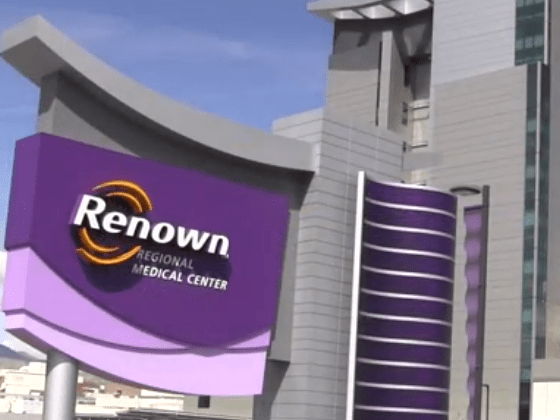Betting on Reno(Editor’s Note: This is the second in a series of articles on the Athens uninsured initiative, produced by graduate students in the Health and Medical Journalism Program at the University of Georgia. Visit the previous article by clicking on the red button to the left.)
[youtube]http://www.youtube.com/watch?v=TBCzbiGEqrE[/youtube]
In Athens, a city where 35 percent of residents live in poverty, many people can neither afford health insurance premiums nor pay out of pocket for services.
As a result, hospital emergency rooms may be the only option that uninsured people see for themselves – even though they may have chronic diseases and not the sudden illnesses or injuries that emergency rooms are meant to handle.
Such misuse of emergency rooms is expensive for hospitals and bad for the nation’s soaring health care costs.
A local coalition of health care providers called the Athens Health Network is seeking relief by looking far beyond Georgia. It’s following the example of Reno, Nev.
Reno is very different from any Georgia city. Lying in the high desert at the foot of the Sierra Nevada, it has long been a center of gambling and tourism. Today, the city is becoming known for an innovative health program. (Source: https://sportslens.com/betting-sites/horse-racing-betting-sites/)
The Reno program, called Access to Healthcare Network, links hospitals, doctors and patients in what the founders call “shared responsibility.” Hospitals and doctors provide services at a reduced fee. Though the fee is relatively low, patients are required to pay it up front, eliminating delays and extra paperwork for caregivers.
“The hospital’s role in the shared responsibility model is that they offer our discounted rate to our members,” said Niki King of Access to Healthcare Network. “The return is that we put our members into a primary care home and get them out of the emergency room.”
For network members, in-patient hospital care at a participating hospital costs $400 a day, all-inclusive, with a $3,000 cap for each stay. According to King, the $3,000 limit protects members against medical bankruptcy.
Outpatient visits and surgical procedures are also discounted, which motivates members to get care from doctors and hospitals instead of the emergency department.
An uninsured woman who comes into an emergency room with pelvic pain may ultimately need a hysterectomy. That’s major surgery. King notes that while ERs are legally required to stabilize all patients, regardless of ability to pay, they don’t have to provide full-scale medical treatment. “They can give you pain pills and send you on your way,” she said.
With the outpatient discounts provided through Access to Healthcare, members can afford the full level of care they need.
A hysterectomy “that might have cost $20,000 to $50,000 [for an uninsured person] . . . is $2,500 to $5,000” for a program member, King said.
Seven years ago, when Access to Healthcare Network began, it contracted with two Reno hospitals willing to treat members at reduced rates: Renown Regional Medical Center and Saint Mary’s Regional Medical Center. The organization now works with seven hospitals across the state.
“Over the past six years, we’ve enrolled 20,000 members statewide, and we have a hospital ER utilization rate of .05 percent,” King said. That means one in every 200 members goes to the ER each year. By contrast, 9 percent to 12 percent of insured Nevadans seek ER care each year.

Patients share responsibility
Partnering with Access to Healthcare Network was a weighty decision for the Nevada hospitals, according to Chris Bosse, vice president of government relations at Renown Health, a nonprofit health system that includes Renown Regional Medical Center.
“Initially when we sat down with Access to Health and looked at contracting, I think the piece we all had to remember was the rates were not going to be rates that covered costs,” Bosse said.
For this reason, Renown views the plan as a part of the hospital’s charity work, but with a twist. Bosse says network members are engaged with their own care in a way that other charity patients are not: They pay fees for every service they receive and are required to show up for appointments.
If a member misses an appointment without canceling 24 hours ahead of time, the member pays a $25 no-show fee. After two no-shows, the member is removed from the program.
“I believe strongly that it’s been a good thing in the Reno area, primarily because doctors have come to the table, hospitals have come to the table, and the patients have come to the table, and we all have to give something,” said Bosse. “[Members] now have access to primary care earlier, and I believe frequently don’t have to go to the emergency room as their primary care home,” she said.
Like Reno hospitals, Athens hospitals treat many patients who don’t have insurance or a regular health care provider. “The emergency departments in Athens are full, at Athens Regional about 75,000 visits a year and growing,” said Grant Tribble, senior vice president of operations at Athens Regional Medical Center.
A medical discount plan would provide approximately 5,000 Athenians with affordable care outside the ER, according to an Athens Health Network board member, Sister Patricia Loome.
This number is similar to the 4,700 members that Access to Healthcare serves from Nevada’s Washoe County, where Reno is located.
ACA may bring changes
Both Athens hospitals have expressed interest in the discount program, which is not an insurance plan.
It’s a way of buying discounted care through a club membership (like buying discounted products through a warehouse club). As the Affordable Care Act, the 2010 federal health care law, moves forward, many Athens-area residents will still be in need of this nonprofit medical discount network, especially if Georgia does not expand its Medicaid program under the act.
The member pool of the Nevada discount plan may change in 2014. That’s when the ACA’s insurance mandate – the requirement that most Americans have health insurance or pay a penalty – takes effect. Since the medical discount plan doesn’t count as health insurance, some patients may actually buy coverage.
The plan also will still serve individuals choosing to pay the penalty, and those who are not required to buy insurance under the ACA, such as those who would have to pay more than 8 percent of their income for an insurance plan.
Athens Health Network hopes to be able to enroll uninsured Athenians in a similar medical discount plan beginning in early 2014.
Reducing inappropriate, expensive ER visits could save Athens hospitals a lot of money. But Loome, who is also vice president for mission services at St. Mary’s Health Care System, said saving money would not be the primary motivation for the hospital to join a discount plan.
“Our first motivation is how can we care for the community,” she said. “And certainly if more people can come for care, to the right level of care, and there’s some payment, then that’s a help to the hospital.”
Julianne Wyrick is a freelance science and health writer currently completing the health and medical journalism graduate program at the University of Georgia.

